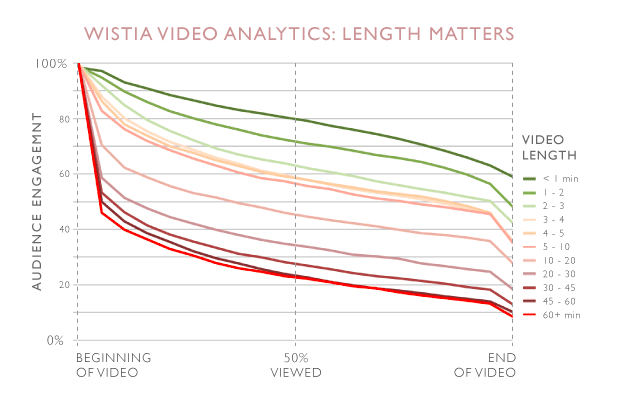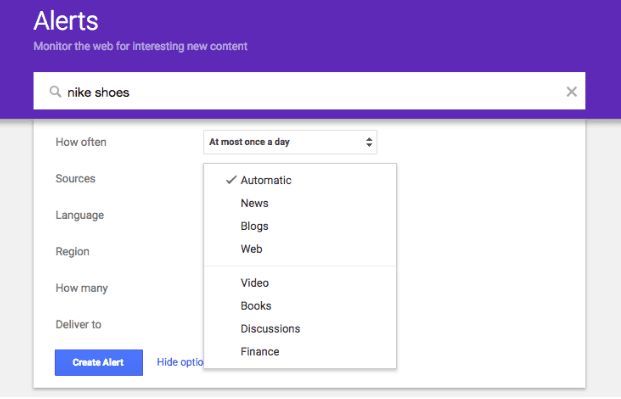E-commerce content marketing is an essential part of every e-commerce marketing strategy. Since video content marketing is on the rise and is expected to grow even further in 2018, it makes sense to prepare a solid video content strategy that helps to improve branding and leads to higher sales.
This post discussed the basics of preparing an effective video content marketing strategy. Let’s start!
Step 1: Identify Your Goals and Prepare KPIs
The very first step is identifying your end goals and setting proper KPIs (Key Performance Indicators).
Ask questions to yourself as to what you want to achieve with the video:
- Do you want to increase conversions?
- Do you want to attract new customers?
- Do you wish to increase your Average Order Value (AOV)?
- Do you wish to improve your branding?
Once you have the answers, set proper goals that can be measured effectively and decide on the KPIs. Here are some example goals and KPIs to get started:
- Goal 1: Boost 20% sales in the second quarter
- Primary KPI 1: Conversion rate
- Goal 2: Boost organic site traffic by 30% annually
- Primary KPI 2: Organic site traffic
- Goal 3: Reduce shopping cart abandonment by 10% in the next quarter
- Primary KPI 3: Shopping cart abandonment rate
Now, decide what kind of video you want to create? Here are some video types to get started as suggested by Coschedule:
- Product overviews
- Product demos (here are some best examples of product video marketing).
- Product Ads
- Customer testimonials
- Partner testimonials (for example, Mercato provides a video testimonial of their partner shops in their homepage).
- Recruitment
- Culture stories
- Behind-the-scenes feature or product releases, company events, and more
- Event pre-promotion
- Entertainment
- How to
- Shout-outs
- About us
Step 2: List Down The Needs For Each Video
After you decide on the type of video to create, you need to list down the needs for every kind of video.
For example a product page video needs:
- A model
- A 360-degree video view of the product (have a look at how you can create a 360-degree video on Facebook).
- High-quality shots of the model with the product
- High-quality images to supplement your video content. You can easily download images from platforms like Burst.
Similarly, if you want to create a video for Facebook advertising then your video will need:
- High-quality product shots of new product release.
- High-quality product shots of your best products.
- Influencer video showcasing influencer endorsing your product.
Once you specify the needs, it becomes easier for you to prepare the video.
Step 3: Write a Script That Your Audiences Will Love
Video needs to have a script that your model or influencer will read out on video. Follow the below suggestions to create a script that your audiences will love:
- Keep the explainer script short and simple.
- The first 30 seconds of video is the most important part so ensure to have your main message during the first 30 seconds of the video.
- Excel in storytelling and build interest in the product right from the start.
- Always add context to your video and make your audience understand how your product solves their pain points.
- Speak directly to your audience and find the perfect tone.
- Always add a Call to Action and end your video with a powerful statement.
- Add a human touch to your video and show to your audience how your brand cares for humanity. A social video goes a long way in enhancing your brand value.
Step 4: Follow 6 Golden Rules of Creating Video Content
- Rule 1: Create shorter videos that are less than a minute long as they perform the best. The below graph from Wistia suggests that most short videos show the best.

- Rule 2: Do not create too many videos at once. The ideal frequency of videos is 2-3 videos a month. Slowly and gradually when your videos start attracting audiences, then you may increase the rate and make it 4-5 a month.
- Rule 3: Always use a conversational tone in your videos.
- Rule 4: Create a video specific subscriber list and send emails to them regularly.
- Rule 5: Embed your videos in other sites by using strategies like guest posting.
- Rule 6: Publish video in series and create a custom hashtag for each video. This will enhance your branding.
Step 5: Find Channels Where Your Target Audience Spends Most of Their Time
You can’t publish videos on channels where your target audiences are not present as this won’t improve your ROI.
So, how do you find ideal platforms for promoting your content?
Create Google alerts about topics that your audiences are interested and slowly Google will start sending you alerts about channels where such content are talked about.
For example, I have created an alert with the keyword “Nike shoes”. You can choose filters like regions or sources to fine tune the search results.

Step 6: Promote Your Videos Effectively, Test Them and Continue Testing Them
The following six platforms should be used to promote your videos:
- Vimeo
- YouTube
- Blog Post
Moreover, you should A/B test your marketing video. The following three elements should be tested in the video:
- Promotional script
- Placement of the video by making use of the heatmap
- CTAs
The testing should be continued as making improvements to videos is a never-ending process.
Video marketing if done correctly can provide a higher ROI. With internet speed improving day by day, people prefer to watch videos on their mobile devices, and text-based marketing is losing popularity. Follow the above strategies to prepare a solid video content strategy and increase your online sales.


